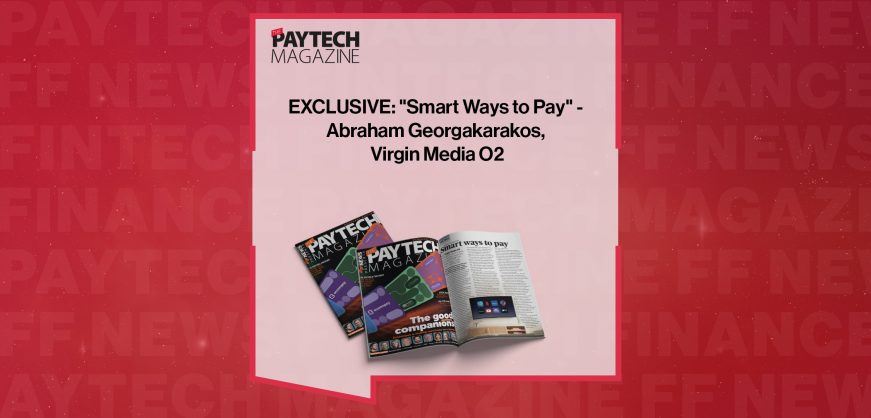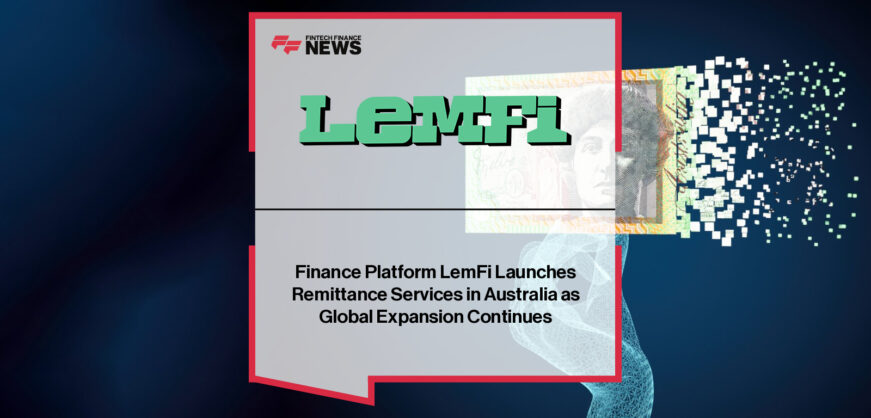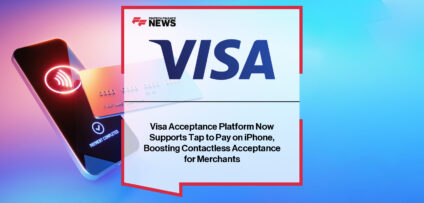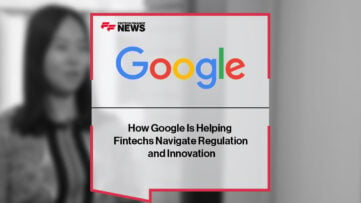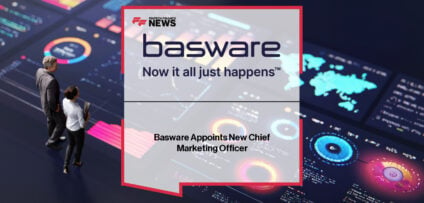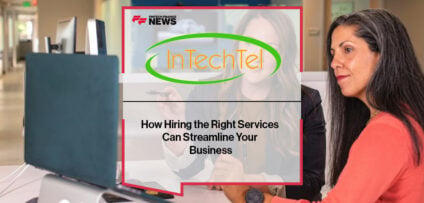Breaking News
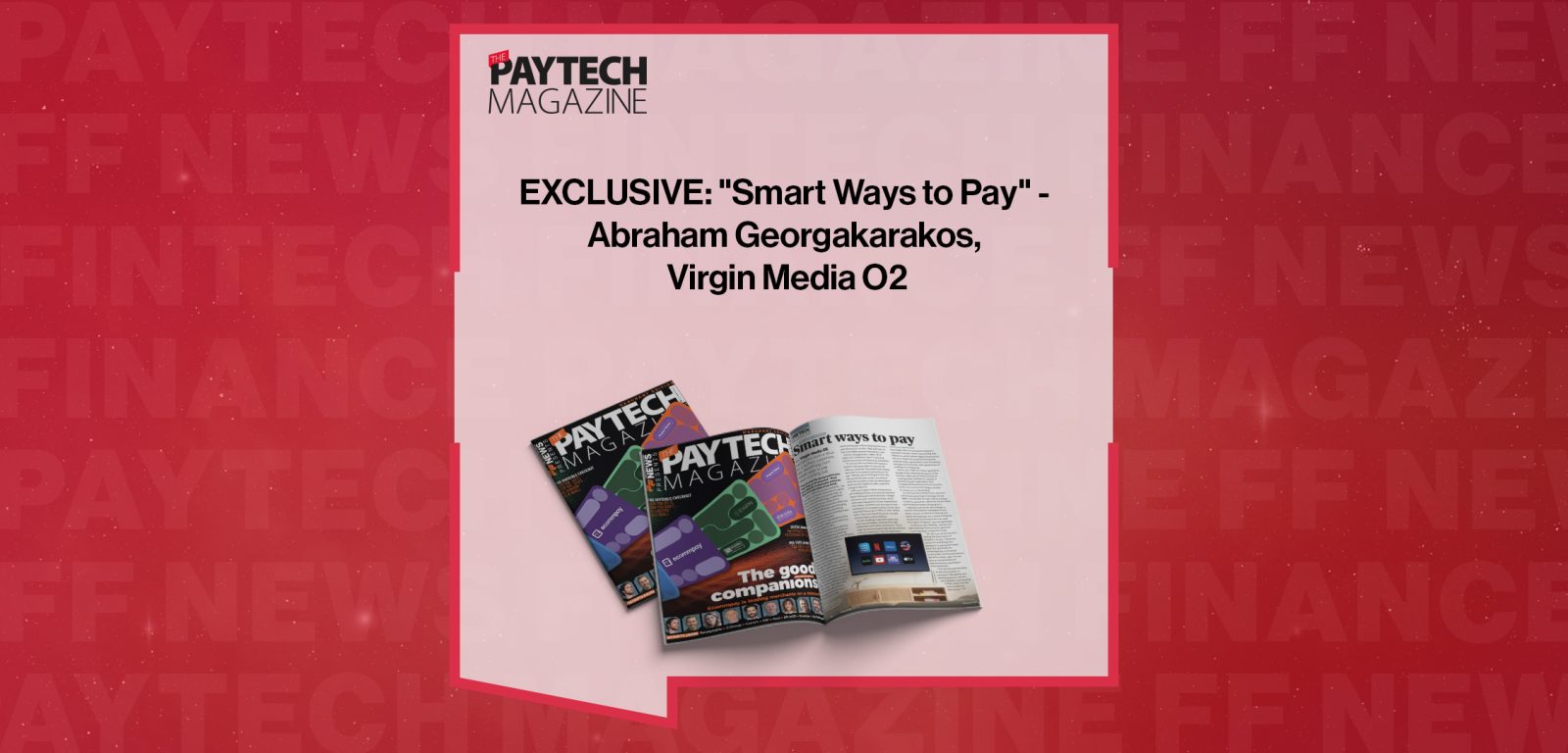
EXCLUSIVE: “Smart Ways to Pay” – Abraham Georgakarakos, Virgin Media O2 in ‘The Paytech Magazine’
As Virgin Media O2 transforms from a telco to a techco, customers are benefitting from easier ways to pay monthly bills
They provide the devices and services that keep us all connected – those portable life-orchestration machines that sit in the palms of our hands. Telcos – telecommunication companies – are no longer an industry.
Governments recognise what they provide as an essential utility, up there with water and energy, so dependent have we become on our mobile phones. Since Vodafone first turned a basic device into a mobile wallet with Kenya’s groundbreaking M-PESA money service (now operated by Safaricom), telcos have been intimately linked with the payments ecosystem.
UK telecoms giant Virgin Media O2 (VMO) has now claimed a slightly more modest but nevertheless significant first. It’s figured out how to enable customers to cover recurring bills for everything from handhelds to broadband and streaming services via their mobile wallets, something no other provider has been able to do. Since 2024, new customers signing up for VMO broadband, landline or TV have been able to check the option to settle their future monthly payments via Apple Pay or Google Pay, secured through the wallets’ built-in biometric authorisation.
This year, that payment choice will also be extended to existing customers. Pay-by-wallet will run alongside an open banking option for those who want to continue to pay by direct debit. That allows them to biometrically authorise arrangements at the touch of a button via their online banking apps without entering their sort code and account numbers. VMO promises to cross more digital payment boundaries soon.
Abraham Georgakarakos, VMO’s VP of Digital and E-commerce, says it’s spanning telecommunications and payments innovation.
“It’s not our role to compete with banks or fintechs, it all comes down to how we can make our customers’ lives easier by providingthem with more products and services,” he says. “Whether you’re coming at it from the telco world, the bank world or the fintech world, the question is, how can we bring all these services together to offer customers a range of options?”
VMO says its goal is better transparency of its billing processes, as customers demand clearer information about telecoms’ charges and services pre- and post-purchase. And it just makes keeping track of your expenditure a lot simpler. Customers can now pay for their broadband, TV or landline contract in the same way they’d buy a cup of coffee or order clothes online. That’s not something you’d normally associate with a utility company.
It’s also bundling sought-after perks and smart security options, delivered through collaboration with banks and fintechs. “Every single day we’re looking at how we can enhance customer experience,” says Georgakarakos.
Evermore connected
Since 2006, VMO has pursued its long-term payments and data vision in partnership with ebp Source, which delivers digital infrastructure and has a long track record of working with utility providers, government, financial services and payment processors with special focus on e-billing and e-payments. Now in the middle of a mass migration to Google Cloud, impacting all aspects of the business, VMO says it’s in the process of ‘creating a data architecture capable of transforming the organisation from a traditional telecommunications business, to the 21st Century technology company its customers are demanding’.
So, with the lines between tech, telecoms and fintech becoming increasingly blurred, VMO is at the helm of major industry change – driven by consumers’ desire for instant media and frictionless means of paying for it.
“Looking at the future, we’re living in a world of connected or embedded finance where, not just in telecoms but across the board, we’re going to see a fusion of financial services into non-financial services, with more layers of options,” says Georgakarakos.
He believes open banking – and the UK’s open banking infrastructure in particular – is an important component in that.
“The UK is one of the countries leading the way in terms of adoption,” he says. “People are using it for everything from paying tax to paying individuals. Next, this will enable theincreasing fusion of financial services with non-financial services like telcos, where, right now, we have an overabundance of financial services operating as micro businesses.
“The use and understanding of data this provides on consumers’ affordability and spending patterns, will also foster greater understanding of their needs and help them to optimise their money.”
This article was published in The Paytech Magazine Issue 16, Page 38
People In This Post
Companies In This Post
- Finance Platform LemFi Launches Remittance Services in Australia as Global Expansion Continues Read more
- Cytora and Altitude Intelligence Partner to Embed Advanced Geospatial and Climate Risk Intelligence into Insurance Workflows Read more
- Visa Acceptance Platform Now Supports Tap to Pay on iPhone, Boosting Contactless Acceptance for Merchants Read more
- How Google Is Helping Fintechs Navigate Regulation and Innovation Read more
- DataHaven on What Truly Defines a Real Insurance Technology Partner Read more





